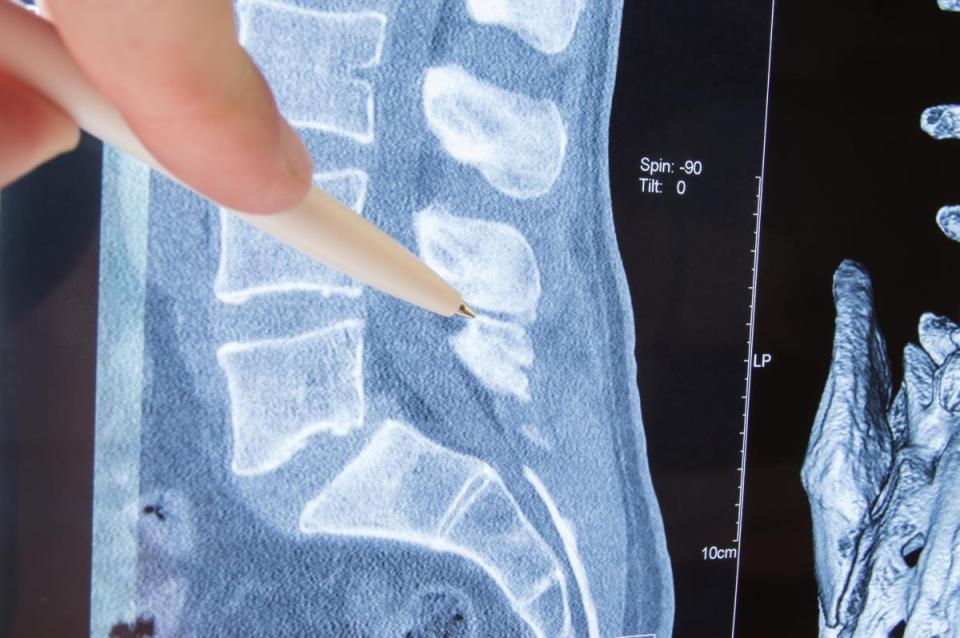Spinal stenosis
Diagnosis
Your doctor will ask you questions about your past health and back pain during a physical exam. You will likely undergo imaging studies that can include X-rays, a CT scan or an MRI.
Treatment
Spinal stenosis treatment may vary, depending on the location and severity of your pain. At HonorHealth, you'll start with a conservative approach to your treatment plan that may include:
Physical therapy:
- Numerous studies indicate physical therapy is key in reducing/relieving back pain
- Help strengthen and coordinate core muscles
- Assess and correct biomechanical issues
Lifestyle modifications:
- Diet: Reducing weight reduces the force on the spine
- Exercise: Exercise promotes blood flow and core muscle strength and coordination
- Smoking cessation: Nicotine constricts blood vessels, which decreases blood flow
Pain medications:
- NSAIDs (non-steroidal anti-inflammatory drugs).
- Ibuprofen, Naproxen, Celebrex, Mobic
- Decreases inflammation
- Avoid long-term use. Side effects may include: ulcers/bleeding, kidney disease, heart attack, stroke
- Muscle relaxers
- Neuropathic medications
You may need a lumbar epidural steroid injection or surgery if your symptoms persist or get worse.
